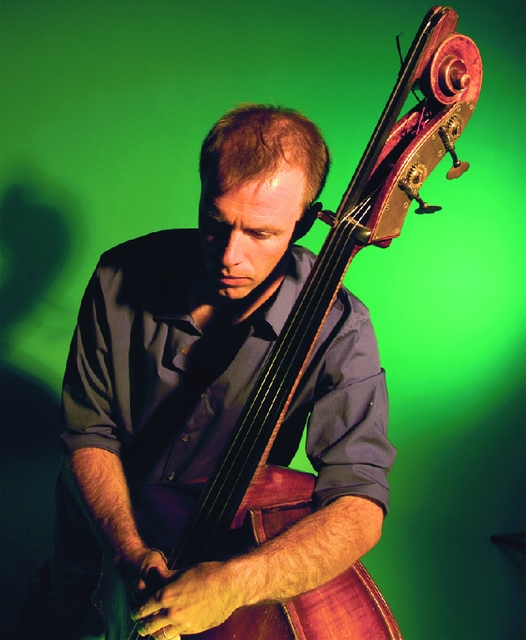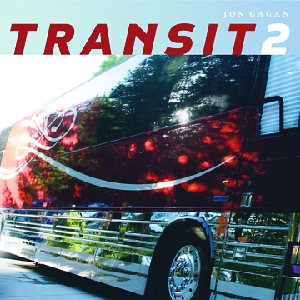Tabla, acoustic and electric guitars, alto and tenor saxes, palmas, synth, Fender Rhodes, vibraphone and marimba, bongos, cajón, kora, djembe, telephone (and more) … the list of instruments and musicians appearing on bassist Jon Gagan’s latest release, Transit 2, takes up most of a CD panel. For Gagan, a Santa Fean whose background is heavy in jazz and funk, the multicultural instrumental palette reflects the world of influences informing his compositions, and a determination to break out of the confines of genre.Thursday night, Gagan’s four-piece group, Transit, featuring Bert Dalton (Fender Rhodes and piano), Ryan Anthony (drums), and Robby Rothschild (percussion), will celebrate the new release with a performance at the Outpost.As the arranger, musical director and bassist for Luna Negra, the backing group for Grammy-nominated Ottmar Liebert, Gagan is certainly no stranger to musical miscegenation. His groove-laden compositions on Transit 2, the follow-up to Transit, morph seamlessly from one modality to another. From ambient techno soundscapes to funky blues, from Brazilian samba to rock ’n’ roll, from nouveau flamenco to jazz, Gagan inducts a wide range of timbres and rhythms to create a highly textured “One World” sound that’s easy to float along with, but full of surprises. He can go from dreamy to gritty and back again in a flash, so don’t get too comfortable.“I just try to take different things that appeal to me and make them work together,” says Gagan.“I’ve always thought there’s not enough kinds of instrumental music, I guess,” he says. “There’s definitely idiomatic parameters that have to be dealt with if you’re going to call it jazz. From where I sit, I feel like that’s been done, and done incredibly well. Arguably, the best stuff was done in the ’50s and early ’60s. So that’s, in a certain way, music of another time … I love the music, and I play it all the time, and I listen to it all the time. But as far as putting another record out into the world, I didn’t see a need for that, for me.”“At the same time, I certainly don’t want to do smooth jazz,” he adds.Oh, bless you, my son.“I want to ignore the genre thing,” Gagan says. “In the process, I’d hoped to appeal to a different sort of person, who’s not necessarily just interested in, let’s say, instrumental prowess or jazz skill—but just likes the sound of music.”The sound of Gagan’s bass, often played as a lead instrument, is a world unto itself, liquid and lyrical. Swells, peals, glissandi, blossoming aches of sound—Gagan brings a heightened and articulate emotionality to the bass, creating an almost synesthetic experience.He’s also canny about how he brings out the melody on the instrument. “When the bass is used melodically, I like to use something an octave up to bring the melody out more, rather than having to play a six-string bass with a high string, or EQ the bass to where it sounds like a guitar,” he says. “I like it to sound like a bass.”At the Outpost, Gagan’s bass will certainly be front and center in the small group, which will be performing music that was originally recorded with a cast of thousands. With the quartet, he says, the emphasis will be a little heavier on the funk and jazz elements.“It won’t be as textural,” he says, but “I kind of like having a lean, mean gigging machine.”
Jon Gagan’s Transit appears at the Outpost Performance Space on Thursday, March 8, at 7:30 p.m. Tickets are $15, $10 for members, available in advance, by phone or in person, at the Outpost (210 Yale SE, 268-0044).










